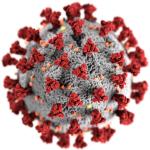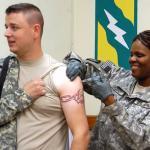Like tens of thousands of Americans baking in the summer heat, last week President Biden was convalescing at home, waiting for the COVID symptoms to pass.
COVID-19
I explained that while we’ve been trying to create a universal flu vaccine for years without success, similar efforts are ongoing for COVID-19.
The arrival of the next pandemic is a matter of when not if.
Vaccine expert Dr. Paul Offit joins Cameron English and Dr. Chuck Dinerstein on Episode 67 of the Science Dispatch podcast to answers these questions and discuss his new book:
We have learned a lot about the SARS-CoV-2 virus during the four years of the COVID-19 pandemic. Because the virus replicates its RNA and mutates in every infection, its spike proteins keep changing.
The new booster, available since September, is effective against the currently dominant SARS-CoV-2 variant in the U.S., JN.1.
Texas’ political leaders recently have made some inconceivably irresponsible policy decisions.
Armando Simón, a retired psychologist, attempted to rebut an
The Wall Street Journal published a news article on January 5, “Why It Feels Like Everyone You Know Is Getting COVID-19,” which contained several worrisome observations.












